WELCOME TO IEEE COMPEL 2021
IEEE COMPEL 2021
Twenty-second IEEE Workshop on Control and Modeling for Power Electronics
November 2-5, 2021
*This will be a virtual event.
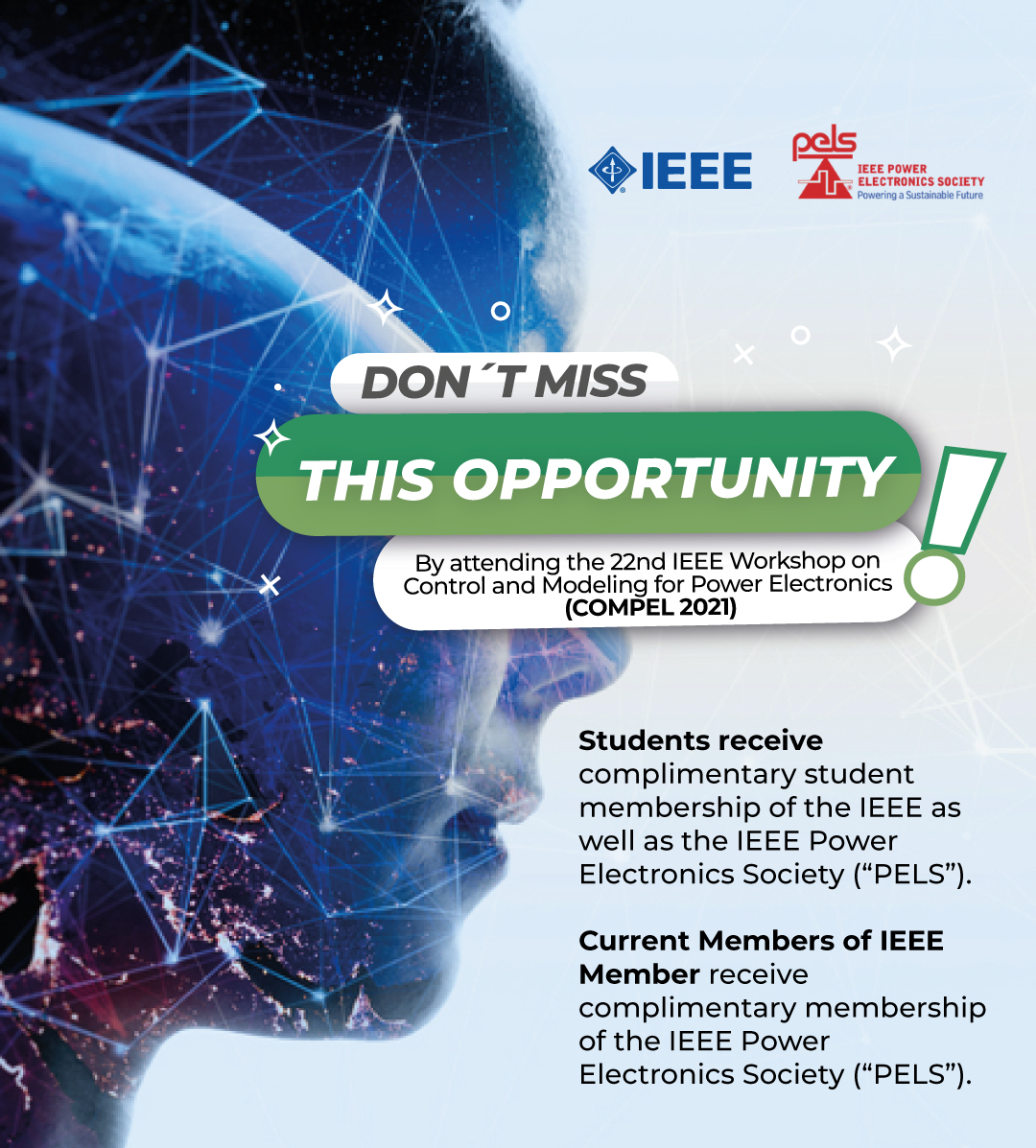
How to access the virtual event
The IEEE Power Electronics Society announces the Twenty-second IEEE Workshop on Control and Modeling for Power Electronics, IEEE COMPEL 2021. This workshop brings together researchers, engineers and students from academia and industry for an interactive discussion on the latest advances in modeling, simulation, analysis and control of power electronic devices, circuits and systems.
Accepted and presented papers will be published to IEEE Xplore.
Register for the workshop HERE
After completing the registration procedures, a confirmation will be sent to your e-mail address with the total amount due.
Authors Registration Policy
At least one author of an accepted paper must register at the IEEE full member, IEEE, and PELS full member or non IEEE member rate (NOT an IEEE student member rate). One full or nonmember registration can cover one paper of which the person registered is an author or co-author.
If you want to register a second or third paper you can do it with an additional fee of $100 USD per each. In the event that you wish to register a fourth paper, you would have to do another full registration.
Online Attendance registration Fees
Early bird registration - before and including October 20, 2021
Late registration - after October 21, 2021
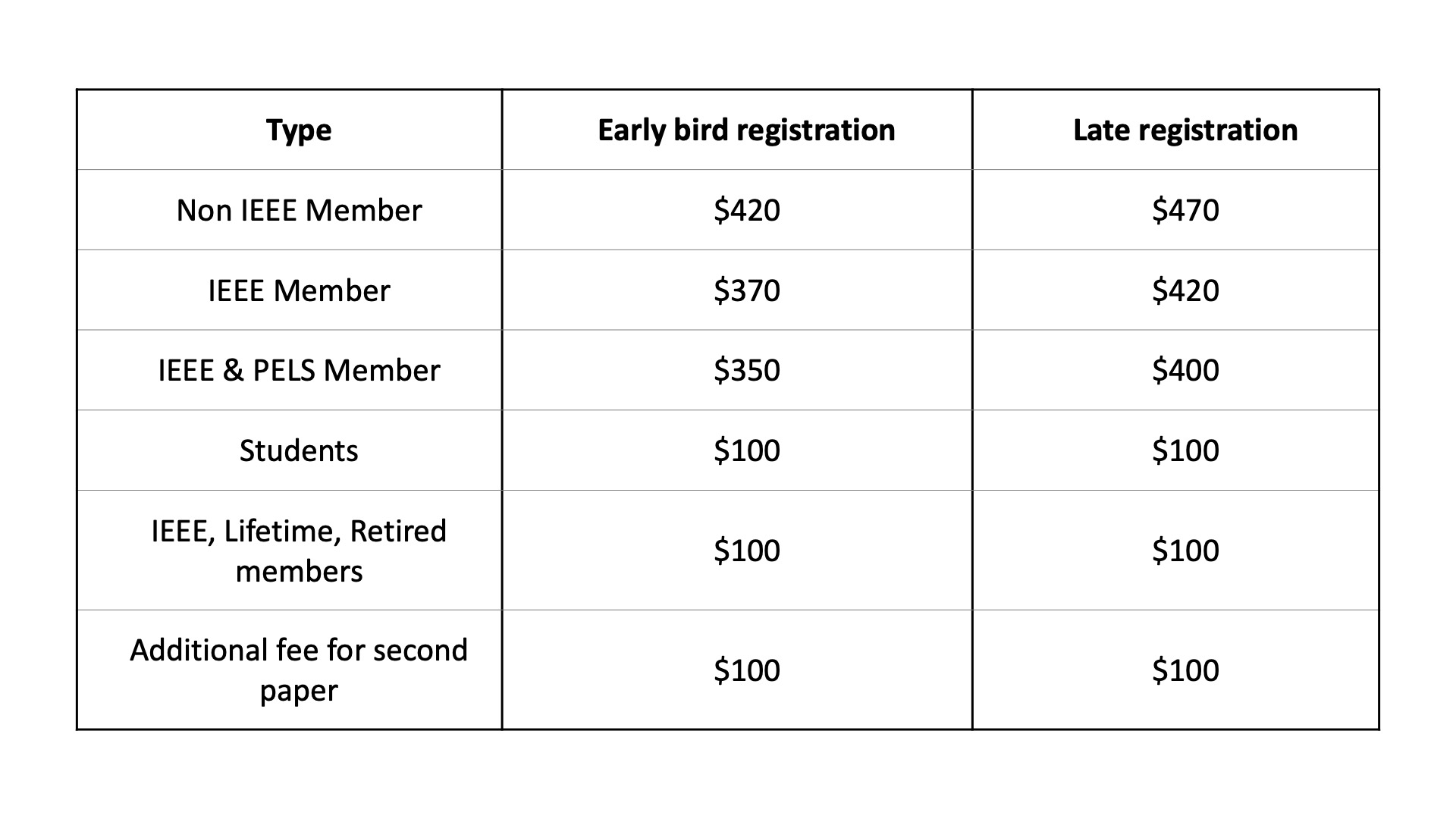
The registration fee for online attendance includes
Admission to the scientific conference program
Conference materials
Payment
Payment must be made in advance, by credit card, bank transfer, or PayU payment.
Payment by Bank transfer is possible until November 1st, 2021 then only credit card and PayU payments are acceptable. All payments are to be made in Colombian pesos. Please note that the USD price is only an indication due to exchange rates.
Cancellation Policy
Cancellations will be accepted until October 15, 2021 (deducted an administration fee of 190.000 COP/ 50 USD).
Cancellations received on or after October 16, 2021, will be non-refundable.
Keynote for COMPEL 2021
Keynote#1
Josep M. Guerrero, Director
Center for Research on Microgrids (CROM) at Aalborg University.
Microgrid Technologies: From the Land to the Sea and Out in Space
This talk will begin by introducing the control of microgrids, the parallelisms with the human brain, and the research for possible sources of inspiration in the last frontiers of neuroscience. In this keynote, microgrid technologies will be introduced to show how land-based microgrid knowledge can be introduced in shipboard systems. The talk will include power quality standards and issues in shipboard electrical systems, DC microgrids, and energy storage systems for ships and ferries, power management systems and optimization for vessels and offshore platforms, and power electronics enabling AC/DC grids in ships. Then, control in electric power systems of satellites and space platforms will be presented, showing approaches that are extended from terrestrial microgrids and explaining the differences and challenges when it comes to applying them out in space. Further, multi-microgrid systems will be discussed for moon craters in future lunar manmade bases. Finally, the extension from the hierarchical control of microgrids to bioastronautics in the control of closed ecological systems to support with oxygen, water, and food to the astronauts and thus creating new ecosystems for the moon and future mars bases.
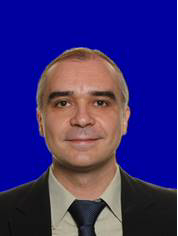
Josep M. Guerrero (S’01-M’04-SM’08-FM’15) received the B.S. degree in telecommunications engineering, the M.S. degree in electronics engineering, and the Ph.D. degree in power electronics from the Technical University of Catalonia, Barcelona, in 1997, 2000 and 2003, respectively. Since 2011, he has been a Full Professor with the Department of Energy Technology, Aalborg University, Denmark, where he is responsible for the Microgrid Research Program. From 2019, he became a Villum Investigator by The Villum Fonden, which supports the Center for Research on Microgrids (CROM) at Aalborg University, being Prof. Guerrero the founder and Director of the same centre (www.crom.et.aau.dk). Nowadays he is working towards the M.S. Degree in Psychobiology and Cognitive Neuroscience.
His research interests is oriented to different microgrid frameworks in applications like microgrid clusters, IoT-based and digital twin, maritime microgrids for electrical ships, vessels, ferries and seaports, and space microgrids applied to nanosatellites and closed ecological systems. Prof. Guerrero is an Associate Editor for a number of IEEE TRANSACTIONS. He has published more than 700 journal papers in the fields of microgrids and renewable energy systems, which are cited more than 70,000 times. During seven consecutive years, from 2014 to 2020, he was awarded by Clarivate Analytics (former Thomson Reuters) as Highly Cited Researcher with 50 highly cited papers. He received the 2021 IEEE Bimal Bose Award for Industrial Electronics Applications in Energy Systems.
Keynote#2
Xiongfei Wang, Professor
Aalborg University, Denmark; KTH Royal Institute of Technology, Sweden.
Stability and Control of Inverter-Based Resources
Power electronics has become a foundational technology for modernizing electric power grids. The massive integration of inverter-based resources is radically changing power system dynamics. The control dynamics of inverters tend to interact with each other and with the grid, leading to several stability problems. This talk will share a series of real-world stability challenges, and address the recent advances in analytical modeling and robust control techniques of inverter-based resources.
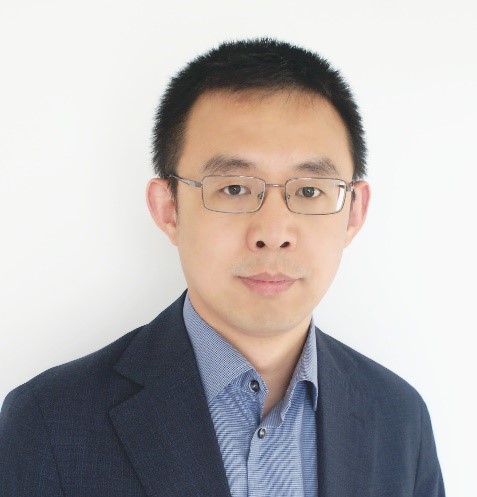
Xiongfei Wang received a Ph.D. degree in energy technology from Aalborg University, Aalborg, Denmark, in 2013. From 2009 he has been with the Department of Energy Technology, Aalborg University, where he became an Assistant Professor in 2014, an Associate Professor in 2016, a Professor and Leader of Electronic Power Grid (eGrid) Research Group in 2018. He is also a part-time Full Professor at KTH Royal Institute of Technology, Stockholm, Sweden, from 2020. His current research interests include modeling and control of power electronic converters and systems, stability and power quality of power-electronics-dominated power systems, high-power converters.
Dr. Wang serves as a Member-at-Large of Administrative Committee for the IEEE Power Electronics Society (PELS) in 2020-2022, a Co-Editor-in-Chief for the IEEE Transactions on Power Electronics Letters, and as an Associate Editor for the IEEE Journal of Emerging and Selected Topics in Power Electronics (JESTPE).
He was selected into Aalborg University Strategic Talent Management Program in 2016. He has received six Prize Paper Awards in the IEEE Transactions and conferences, the 2018 Richard M. Bass Outstanding Young Power Electronics Engineer Award, the 2019 IEEE PELS Sustainable Energy Systems Technical Achievement Award, the 2020 IEEE Power & Energy Society Prize Paper Award, the 2020 JESTPE Star Associate Editor Award, and the Highly Cited Researcher in the Web of Science in 2019-2020.
Keynote#3
Jian Sun, Ph.D., Professor
Department of Electrical, Computer, and Systems Engineering, Director, New York State Center for Future Energy Systems Rensselaer Polytechnic Institute
Impedance-Based Stability Criteria for Converter-Based Power Systems
An impedance-based stability criterion for grid-connected converters was published in 2011 to address emerging stability challenges associated with grid integration of renewable generation and high-voltage dc (HVDC) transmission. The method attracted broad interest when the predicted stability problems started to affect the industry from 2014-2015. Since then, impedance analysis has become a common practice in the industry to support new product design and system development. New impedance-based specifications and grid codes are also being developed. As society moves towards decarbonized economies that rely 100% on renewables, the power grid will also evolve into a converter-based power system. Converter-related stability challenges that so far have been limited to the grid interface of individual converters are expected to become more systemic and will require more general modeling and analysis methods. This talk will review the new challenge and present the generalization of the impedance-based stability criterion to such converter-based power systems, including both ac and hybrid ac-dc grids.
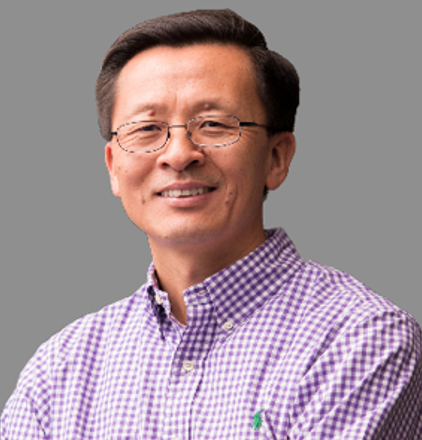
Dr. Jian Sun joined the faculty at Rensselaer Polytechnic Institute (RPI) in 2002, where he is currently a Professor in the Department of Electrical, Computer, and Systems Engineering. He is also Director of the Center for Future Energy Systems (CFES) funded by the New York State government. His research interests are in the general area of power electronics and energy conversion, with an emphasis on modeling, control, and different applications including renewable energy and power systems.
Dr. Sun received his doctorate from the University of Paderborn, Germany. Prior to joining the faculty at RPI, he spent five years at Rockwell Collins working on power electronics for aircraft power systems and was a Post-Doc Fellow at Georgia Tech from 1996 to 1997. As Director of CFES, he is responsible for the strategic directions and development of the Center’s research, industry collaboration, education, and outreach programs. His professional activities in the power electronics community included serving as Editor-in-Chief of IEEE Power Electronics Letters from 2008 to 2014, Treasurer of IEEE Power Electronics Society from 2013 to 2020, and Vice President for Conferences since 2021. He works closely with industry in research and has also served as consultant/advisor to more than a dozen companies in the US, Europe, and Asia, including Rockwell, United Technologies, GE, Facebook, China State Grid, and TenneT.
Dr. Sun received the IEEE PELS Modeling and Control Technical Achievements Award in 2013 and the R. David Middlebrook Outstanding Achievement Award in 2017. He is a Fellow of IEEE.
Round Table
Innovation and education in Latin America for Power Electronics
Guillermo Oscar García, professor, Electrical and Electronics Department at National University of Río Cuarto (UNRC), researcher at the National Council for Scientific and Technical Research (CONICET)
Mario Pacas, professor University of Siegen
Ahmed Elasser, Principal Systems Engineer, GE Research

Guillermo Oscar García was born in Río Cuarto, Argentina, on September 11, 1954.
He received the Electromechanical degree from the National School of Technical Education Ambrosio Olmos, Río Cuarto, Argentina (1973), the Electrical and Electronics Engineer degree from the National University of Córdoba, Argentina (1981), the MSc degree (1990), and Ph.D. degree (1994), both in Electrical Engineering, from COPPE, Federal University of Rio de Janeiro, Brazil. In 2020 he received the "Houssay Trajectory Award", corresponding to Engineering, Architecture and Informatics, the highest award that is annually given to the most outstanding people in the Argentine scientific system.
Since 1994 he has been with the Electrical and Electronics Department at National University of Río Cuarto (UNRC), where he served as director of the Applied Electronics Group (GEA) and founding director of the Master and Ph.D. Programs in Sciences of Engineering. Since 1998 he has also been a researcher at the National Council for Scientific and Technical Research (CONICET) of Argentina. He is currently a full Prof. at UNRC and Principal Researcher at CONICET. He is a Visiting Prof. at the “South West Jiaotong University”, Chengdu, China (2018-2022) and a member of the “China-Latin American United Laboratory for Rail Transit”, funded by the Ministry of Science and Technology of the People's Republic of China since 2018.
He has been a visiting professor at WEMPEC, University of Wisconsin, USA (1997), with a Fulbright research grant; at the Dept. of Electrical, Electronic and Communications Engineering of the University of Zaragoza, Spain (1997); and at the Department of Electrical Engineering of the University of Arkansas, USA (2003 and 2019). In addition, he has been coordinator or member of numerous projects and international networks between different countries (Germany, Brazil, Chile, China, Colombia, Cuba, Ecuador, France, USA, Spain, Mexico, Panama, Paraguay, Peru, Portugal, Republic Dominican Republic, Uruguay, and Venezuela).
He has been a member of the Institute of Electrical and Electronics Engineers (IEEE) since 1985 and a “Senior Member” since 2001. He has been Treasurer (2005-2006), Vice President (2007-2008), and President (2009-2010) of the Joint Chapter # 1 of the Argentine IEEE (which includes Industrial Electronics, IES; Control Systems, CSS; Robotics and Automation, RAS; Industry Application, IAS; Power Electronics, PES; and Vehicular Technology, VTS). He has also been a member of the Argentine Association of Automatic Control (AADECA) 1994-2018 and is a member of the RPIC Standing Committee since 2005.
His topics of technical interest are power electronics, electrical machines, automatic control systems and their applications in smart electrical microgrids; integration of renewable energies; conversion, processing, and storage of electrical energy; electric mobility; fault detection, diagnosis, and tolerance.
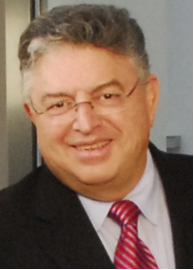
Mario Pacas, VDE, Senior Member IEEE, studied Electrical Engineering at the University of Karlsruhe (KIT) in Germany, obtaining the Dipl.-Ing. and the Dr.-Ing. –degree in 1978 and 1985 respectively.
From 1985 to 1996 he worked for BBC/ABB in Switzerland and Germany in different R&D and management positions with a very wide experience in international projects. In the last years with ABB he was responsible for the development of servo drives and later Product Responsible Manager for these products. Dr. Pacas was strongly involved in the introduction of digital control in the area of servos and actively participated in different international R&D consortia. Since 1996, he has been a member of the Department of Electrical Engineering and Computer Sciences at the University of Siegen, Germany, and has headed the Institute of Power Electronics and Electrical Drives maintaining numerous partnerships with universities in Europe, Latin America, and Asia. His special fields of interest are motion control, diagnostics and reliability, system identification, and optimization of motor drive systems. Dr. Pacas is now a Senior Professor at the University of Siegen and an independent consultant in the area of power electronics, electrical drives, and automation.
Additionally, he has been appointed as a peer and advisor in many scientific government and accreditation commissions in Germany and abroad, especially in the area of higher education and research.
Dr. Pacas has served as Member at Large, as VP for conferences, and currently as VP for Global Relations in PELS and as conference director of the PCIM Europe.
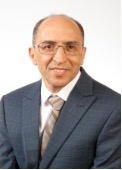
Ahmed Elasser received his MS & Ph.D. degrees in Electric Power & Power Electronics in 1993 & 1996 respectively from Rensselaer Polytechnic Institute. He is a Principal Systems Engineer at GE Research in the areas of Electric Power, Power Electronics, and Power Semiconductor Devices. He worked on Power Devices, Solar Energy, Power Conversion Systems, and is currently leading the Battery Energy Storage Systems Power Conversion. He published over 40 papers and has 37 issued patents. He is a Senior IEEE Member. Dr. Elasser is the recipient of numerous GE Awards for his contributions and innovations over his 26 years GE career.
Updated paper submission deadline: November 12th, 2021
Final paper submission steps
1) Preparing your pdf file
You can use the IEEE templates (MS Word or LaTeX) to create your source document. These templates can be downloaded from the following website: http://www.ieee.org/conferences_events/conferences/publishing/templates.html
Please note:
- Papers must strictly follow the format to be included in the workshop proceedings.
- The expected length of paper is between 6 to 8 pages. All papers are limited to maximum 8 pages in length.
- Do not add page numbers to your paper.
- Make sure you carefully proofread your source document.
2) Create your IEEE PDF eXpress Account
Once your pdf is ready, Log in to the IEEE PDF eXpress TM site.
First-time users should do the following:
- Select the New Users
Enter the following: 52922X
- for the Conference ID, your email address, and a password.
- Continue to enter information as prompted. An online confirmation will be displayed and an email confirmation will be sent verifying your account setup.
Previous users of PDF eXpress or IEEE PDF eXpress Plus need to follow the above steps, but should enter the same password that was used for previous conferences. Verify that your contact information is valid.
Upload your file, convert it, and check the status of conversion. Once the conversion is complete, a report will be generated for the file conversion. Check whether conversion was successful, or some changes are needed.
3) Upload your paper to EasyChair
Please note that at least one author of an accepted paper must register at the IEEE full member, IEEE and PELS full member or non-IEEE member rate (NOT an IEEE student member rate). One full or non-member registration can cover one paper of which the person registered is an author or co-author. Please check Registration for more information.
- Before uploading your final paper, make sure the title in EasyChair matches your camera-ready paper exactly.
- Compare all author names in EasyChair with the author list in your paper. They must be identical and in the same order.
- Make sure you upload the camera-ready final paper generated by IEEE PDF eXpress.
- Log into the COMPEL 2021 EasyChair submission page at
https://easychair.org/conferences/?conf=ieeecompel2021
and update the information and authors. - To upload the final paper, click on “Update new version” in the upper right corner of your submission information page.
4) Submit the IEEE Electronic Copyright Form
In order to be published in the conference proceedings, all accepted papers MUST be accompanied by a signed IEEE Copyright Form. Don’t forget to click on the “Sign copyright form submission button” after uploading your paper. In case any paper cannot use the electronic Copyright Form (eCF) system due to specific policy of the employer, a filled copyright form should be sent to Publication Chairs directly and please do not trigger the eCF process.
Important notice: if you do not submit an electronic copyright your paper will not be published in the proceedings or on IEEE Xplore.
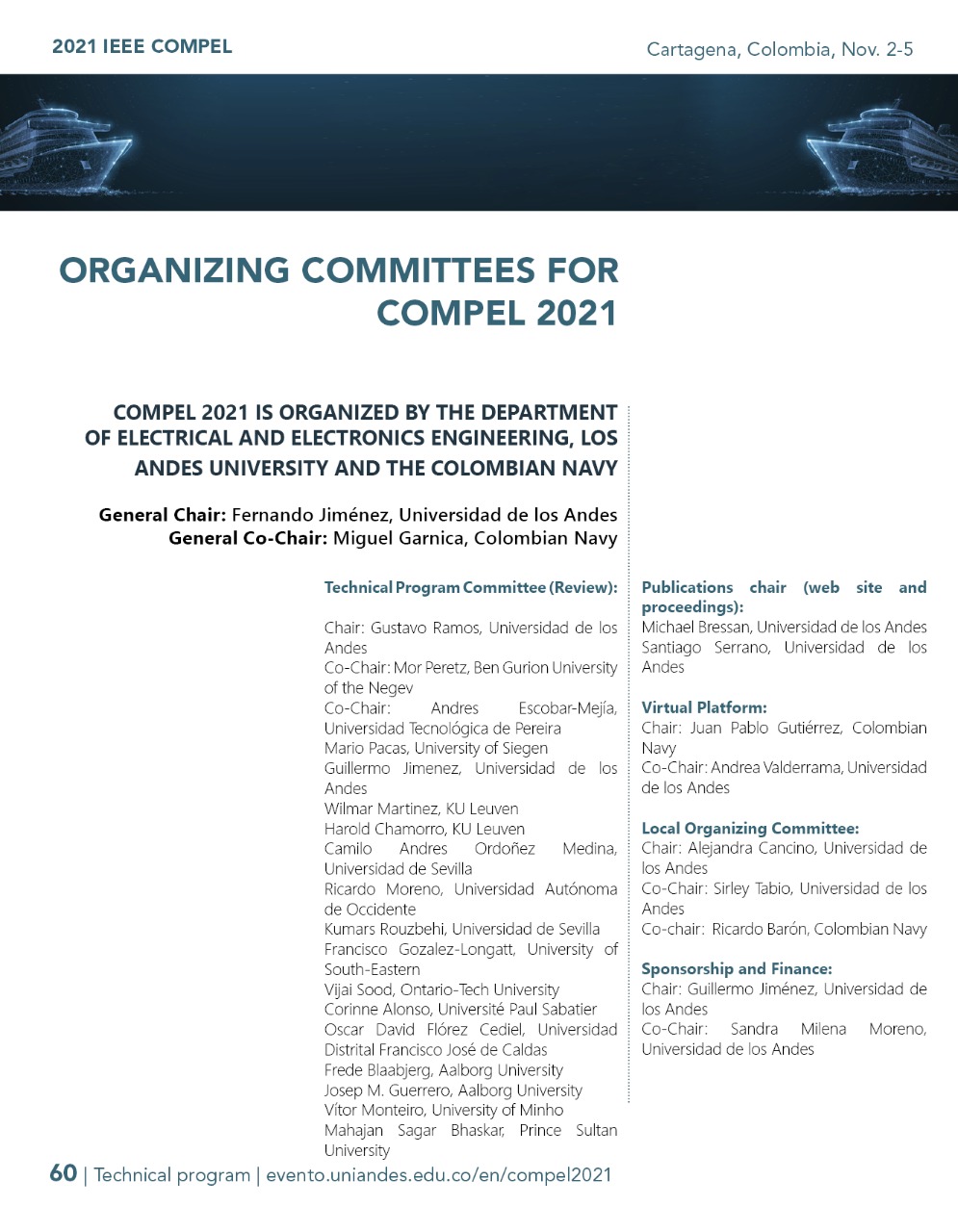
Organizing Sponsors
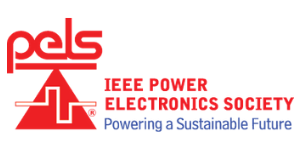

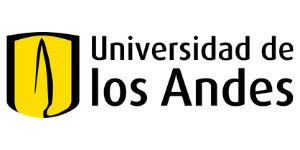
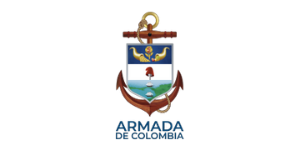

The IEEE Power Electronics Society announces the Twenty-second IEEE Workshop on Control and Modeling for Power Electronics, COMPEL 2021. This workshop brings together researchers, engineers, and students from academia, industry, and government for interactive discussions on the latest advances in modeling, simulation, analysis, and control of power electronic devices, circuits, and systems of small and large scales.
Workshop themes include (not limited to):
- Modeling and simulation: Modeling of devices and components in power converter systems, multi-domain and multi-level modeling (such as electro-thermal models, multi-physics models, and integration of simulation models with different detailing levels), efficient modeling and simulation of multi-level converters, numerical methods for simulation of complex systems, accurate converter models For large scale system studies.
- Control of Power Converters: Linear and nonlinear control algorithms for AC-DC, DC-DC, and AC-AC converters, digital control and discrete-time controller analysis, implementation techniques (such as DSP, FPGA), control of inductive power transfer systems, control of ultra-high switching frequency converters.
- Hybrid Systems and Power Management: Design and control of power converters in hybrid transportation systems (such as electric vehicles, trains, ships, and aircraft systems), power management techniques for power supply systems with energy storage (such as vehicles, telecommunication, computation systems, and grid-scale energy storage), wireless power transfer, energy storage management and operation techniques, systems with power ICs.
- Design, Optimization and Simulation Tools: Design methodologies for electronic power converters, reliability-optimized design approaches, multi-domain and multi-objective optimization of power converter system design, optimization-oriented simulations, hardware-in-the-loop (HIL) testing and simulation, real-time simulation and rapid prototyping.
- Stability of Power Electronics Systems: Stability analysis of power systems dominated by power converters, stability of integrated ac and dc power systems, controller interaction and stability problems in converter dominated systems, representation of power converter stability properties in power system stability studies, power system compensation and damping of power system resonances, constant power load instability effects in dc and ac systems, non-linear instability phenomena in power electronic converters (limit cycles, bifurcations, chaos).
- Education & Innovation: Innovative teaching methodologies, research and innovation powered by smart grid laboratories, virtual and interactive laboratories in education, multimedia tools, and interactive simulations.
Papers on transportation, marine and maritime applications would be appreciated.
Preparation of Submissions:
Prospective authors should submit a digest not exceeding five single-column double-spaced pages (including references) in PDF format. Information about the paper, including title, the topic of interest, authors’ names, affiliations, complete mailing addresses, telephone and e-mail addresses of the corresponding author, and a 100-word abstract must be provided in the submission system. Further details will be posted on the website: https://electricayelectronica.uniandes.edu.co/es/compel-2021
Venue:
General Chair: Fernando Jiménez, [email protected], +57 313 6114995
General Inquiries / Local Committee: [email protected]
Important Deadlines:
Digest submission: September 15, 2021.
Notification of acceptance: September 30, 2021
Early registration: October 20, 2021
Full paper final submission opens: October 1, 2021
Full paper final submission deadline: November 8, 2021
Workshop Schedule:
Day 1: Tuesday (2 Nov): Tutorials
Day 2: Wednesday (3 Nov): Panel and dialog Sessions, key note, industrial tutorial
Day 3: Thursday (4 Nov): Panel and dialog Sessions, key note, industrial tutorial
Day 4: Friday (5 Nov): Panel and dialog Sessions, key note, cultural spectacle
Final digest submission deadline: September 15, 2021
Preparation of Submissions:
The digest should not exceed five single-column double-spaced pages, including figures and references, in PDF format. The first page should contain the paper title. No indication of authors’ names or affiliation should be included in the 5-page digest.
Please download the digest template for MS Word and LATEX.
Download the data here
Please log into the COMPEL 2021 EasyChair submission page at https://easychair.org/conferences/?conf=ieeecompel2021 and upload your digest.
General Chair: [email protected]
Sponsorship Chair: [email protected]
Organizing Chair: [email protected]
Please refer to the attached workshop schedule and make sure you attend the session you are assigned to. Have in mind that the times indicated in the workshop schedule are in (GMT-5) time.
PANEL SESSION PRESENTERS:
Each presentation will be 15 minutes long. Please plan your presentation and slides accordingly.
There will be a 15 min session for questions and answers at the end of each panel that you need to attend.
The presentation format is PowerPoint or PDF.
DIALOG SESSION PRESENTERS:
Each Dialog Session will be held in different virtual rooms so that the audience can interact with the authors.
The idea is to have a conversation with the audience in the virtual room you are assigned and solve any questions or comments that may arise.
The presentation format is PowerPoint or PDF.
Each Dialog Session will be 60 min long. We recommend having a short presentation so you can expose it briefly and repeat again as new guests might join your presentation.
Each author has to share his presentation during the session, we want to have them just in case something goes wrong in order to be able to give you support.
*In the following link you can also find the PowerPoint template that should be used during your presentation HERE
NOTE:
Remember that there will be a Daylight Saving Time change in Europe scheduled on October 31st 2021. When local daylight time is about to reach sunday, October 31st 2021, 03:00:00 clocks are turned backward 1 hour to 2:00:00 local standard time instead.